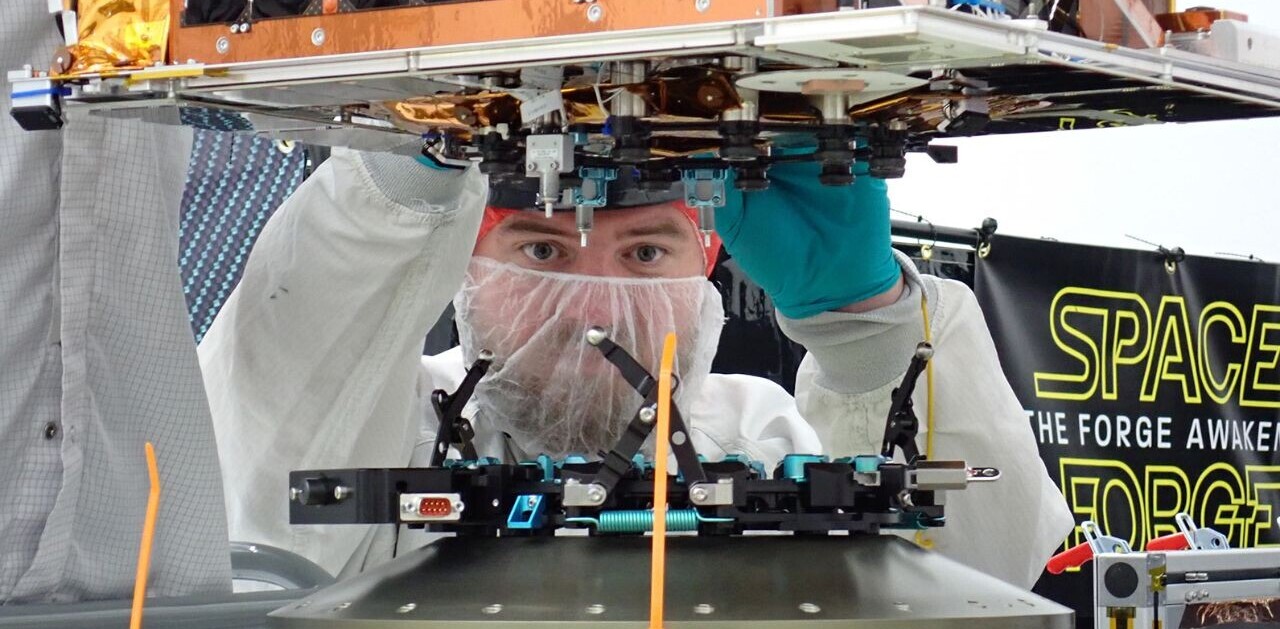
Wundercar, a ride-sharing service based in Germany, is set to launch in private beta next week in Berlin, bringing potential for passengers wanting a taxi-like experience, but without the cost of an actual taxi. A week or two later, the service will be opened up to everyone in Berlin and the app will be available from Apple’s App Store, with Android to follow soon after.
For the uninitiated, services like Wundercar’s aren’t exactly new – Lyft and Sidecar are two relatively well-known examples that are already operating in the US.
However, in Europe there’s not really anything that focuses on short ride-sharing hops, although there are companies like BlaBlaCar or Liftshare that allow drivers and passengers to post adverts for longer journeys. There are also other options for people wanting to rent out their own cars, but nothing that really offers an on-demand service.
Wundercar is different, though. Rather than offering a marketplace-style portal and letting users work it out for themselves, all Wundercar rides are on-demand and free by default – if the passenger thinks the driver and journey were worth paying for, they give a donation. For each donation received, Wundercar will take a 20 percent cut. It’s a pretty simple model.
And if you’re thinking “Well, no one will pay”, you should know that there’s a system for passengers and drivers to leave feedback. So if you get a reputation as someone that accepts lifts but never pays, there’s a good chance that people will simply stop picking you up.
“At the end of the ride it’s up to the guest if they want to make a donation to the driver. The basic assumption is that you ride for free, but if you liked it you can make a donation through the app, but you have to keep in mind that the driver will rate the guest at the end,” Wundercar’s founder and CEO Gunnar Froh told TNW.
Following a short beta period, the company will open it up in other German cities, to be closely followed by London. Or at least, that’s the plan – a pretty impressive one for a company that was only formed in October last year.
Wundercar has good reason to feel bullish about its future. Since starting in October, it secured an unspecified small round of seed funding, and in the week running up to Christmas the company was approached by VC firms in New York, London and Paris and secured another round. That’s quite a Christmas present to round off 2013.
The regulatory hurdle
There’s a reason that other companies haven’t managed to roll out this ride-sharing model in Europe yet – Uber, for example, operates a ride-sharing system in some cities, but offers a full, more traditional taxi service in others like London. The reason? Different regulations for different countries, and even different cities, have made it tricky for Uber (or any other company) to operate in this way.
However, Froh has also been involved with Airbnb and thinks that his experience there in facing regulatory hurdles will keep Wundercar in good stead.
“With Airbnb, I spent a good part of my time meeting with city representatives in Hamburg, Berlin and other cities… making proposals for how to adapt local regulations, and we’re now again doing that in this context,” he said.
Wundercar has been in driver recruitment mode until now in order to get enough drivers on the platform ahead of launch. As well as checking all the relevant documentation (driver’s license information, car paperwork, criminal background checks etc.) It also trains all of the drivers itself.
The training has two aspects: one focuses on safety – how to safely pick up a person, how to act with a passenger, what to do if something happens on the trip – and the other is service quality. This will really be the key for Wundercar. Ensuring that passengers are comfortable (can listen to whatever they like, can track journey on a map, making sure drivers wait until passengers enter the building when dropping off etc.) will be key to repeat custom.
“This is the last part of the recruitment process because those take place in small groups and our trainers will make a decision after that training about who gets the go-ahead to be a driver, based on a criteria of ‘would you actually want to take a ride from this person'” Fro said.
The difficulty for the company here could simply be scaling the service throughout different cities and countries – carrying out driver training and checks, on top of building the actual service and attracting customers, will be a challenge.
Nonetheless, for a pretty much as-yet untested idea in Europe and the UK, Wundercar needs to get its proverbial ducks in a row – if it gains momentum and some early success, it’s likely to come under even greater potential regulatory scrutiny and when it does , driver checks and training will all need to be in order.
While the service is launching first in Berlin and then other cities, Froh said it would only be “weeks, not months” before it arrived in London – a capital city with virtually no viable alternative lift-sharing options for short hops across town.
There’s an interesting twist for the few companies in the US that do offer on-demand ride-sharing – both Lyft and Sidecar started out on a pay-what-you-want basis, but both now charge a regular set fee for journeys.
However, Froh doesn’t foresee having to change Wundercar’s model in the future:
From our perspective, the donations model where the basic understanding is that a ride is offered for free and we only facilitate voluntary donations by guests, is the only true community model. It ensures that we attract the right drivers, too… We don’t foresee a situation where we could be forced to switch to other payment models.
In November, we questioned whether the clock was ticking for the sharing economy, but even in the face of this uphill battle companies like Wundercar are still trying to fundamentally change the way entrenched systems operate. Now, as noted then, it’s only by consulting with – and being willing to negotiate with – the relevant authorities, that any startup operating in the sharing economy will have a shot of being successful in the long term.
As a resident of London, one of the most expensive places in the world to get a cab, I truly hope Wundercar is ready for the challenge, and a viable, safe alternative to taxis is finally available here too. And if it can pull it off, that’s quite an achievement for a company that’s a little over 100 days old.
Featured Image Credit – John Moore/Getty Images
Get the TNW newsletter
Get the most important tech news in your inbox each week.






